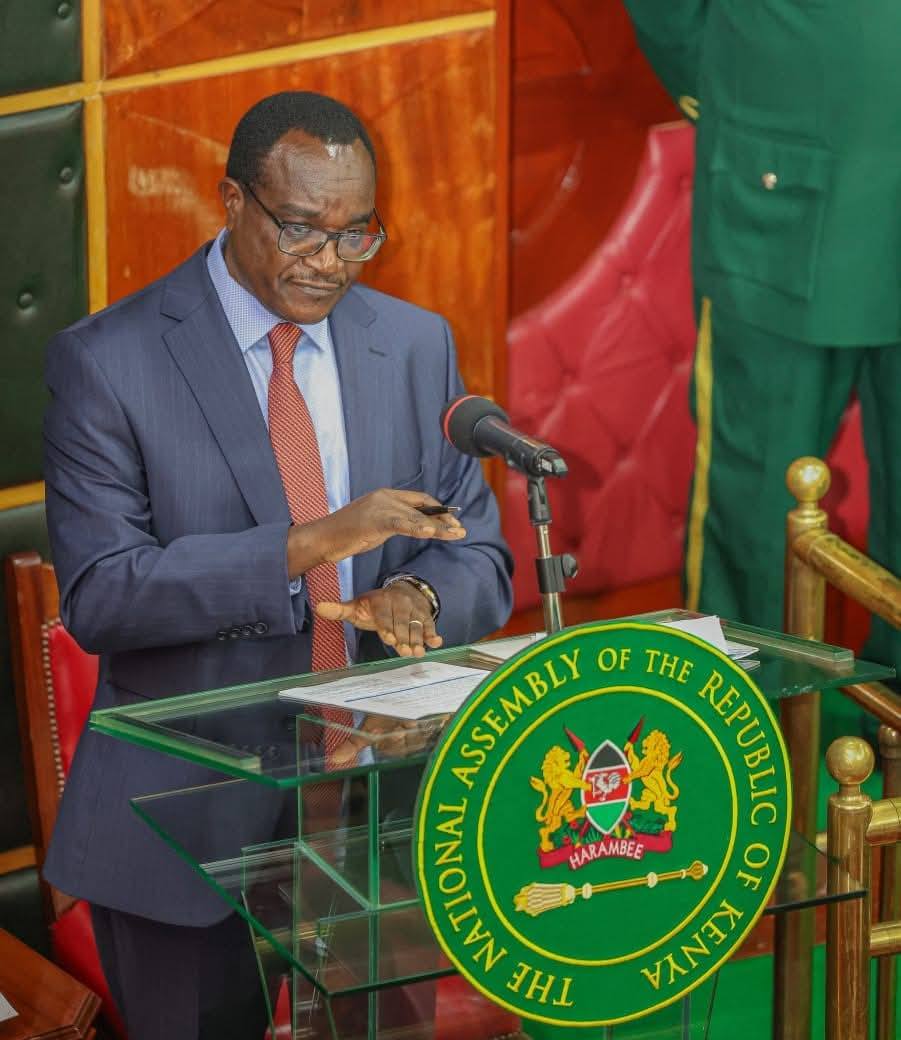The Ministry of Education has temporarily delayed the release of capitation funds to schools following an audit that revealed some institutions receiving government money did not exist.
Cabinet Secretary Julius Ogamba told the National Assembly on Wednesday that the exercise is part of a wider effort to verify schools and learners across the country.
Answering a question from Emuhaya MP Omboko Milemba, read in the House by Gilgil MP Martha Wangari, Ogamba explained that the verification aims to ensure public resources are only directed to legitimate schools.
Wangari asked, “Could the Cabinet Secretary state the plans that the Ministry of Education has put in place to ensure that all schools receive capitation to facilitate their operations during the third term, given that national examinations are about to commence? Could he also outline measures to ensure smooth running of schools during the ongoing verification process, indicate how long the exercise will take, and explain the actions being taken to uncover ghost schools that have been receiving funds for infrastructure and examination purposes?”
Ogamba confirmed that the Office of the Auditor-General had discovered anomalies in the distribution of capitation, including payments to schools that do not exist.
“Mr. Speaker, the Office of the Auditor-General recently reported that some of the schools that received capitation from the Ministry of Education were non-existent,” he said.
“Following this report, the Ministry decided to undertake a comprehensive verification exercise to determine the actual number of schools and learners in the country.”
He added that the verification is designed to increase transparency and accountability, making sure that only verified institutions benefit from the funds.
By October 7, 2025, the Ministry had cleared payments to 752 institutions, spanning primary, junior, senior, and special needs schools, supporting 9,430,139 learners.
Ogamba provided details on disbursements so far: secondary schools have received Sh10 billion of the Sh10.3 billion allocated, representing 96 percent; junior schools have been paid Sh4.1 billion of Sh5.7 billion, or 73 percent; and primary schools have received Sh821 million out of Sh1.7 billion, accounting for 48 percent of the total.
The CS assured MPs that the verification would soon conclude, with a detailed report expected within the week. “By Wednesday next week the exercise will be done and once the report of the analysis is released we will then determine which and where the ghost schools are located. Retrospective action will then be taken by the investigative agencies,” he added.
Nyeri County MP Rahab Mukami raised concerns over the timing of the verification, arguing that it was disrupting preparations for national examinations.
“Why have Form Four students been sent home while we know very well that they should be preparing for their exams?” she asked.
Mukami urged the ministry to instruct school principals to recall students to allow them to complete their exam preparations without interruption.
